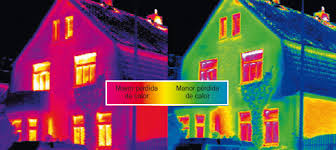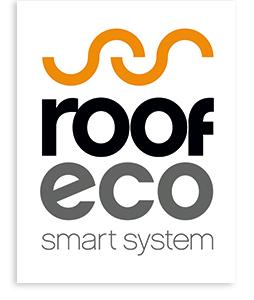Importance of insulation in energy savings

Whether due to high pollution or the high price of energy in Spain, we are increasingly aware of the importance of reducing energy consumption in our homes, even if it’s just to save on energy bills.
Often, when we think about saving energy, we focus on reducing our electricity and natural gas bills. However, lowering our rates doesn’t lead to savings in consumption; it’s just a bandage. One of the most important aspects when it comes to reducing a home’s energy consumption is insulation. We’re going to tell you about the benefits of improving this aspect of your home.
Thermal insulation in your home
Thermal insulation is performed by a material or system designed for different functions. A load-bearing wall that meets the requirements for complete thermal insulation in one building may simply be an additional element for such insulation in another.
Due to the importance of insulation, there are regulations such as the Technical Building Code (CTE) or the Regulations for Thermal Installations in Buildings (RITE), which establish the obligation to meet a series of minimum energy efficiency requirements, whether in a new home or one undergoing renovation.
In industrial applications, insulation is used to prevent heat transfer, which could hinder processes where this type of transfer is not possible. Furthermore, if this insulation is not adequate, high temperatures can occur, leading to accidents or health risks.
Advantages of improving thermal insulation in a home
Reduction of energy consumption
This is the main advantage, and the reason why insulation has so many regulations associated with it. Good insulation makes the interior temperature more stable and reduces heat or cold loss through the building envelope. If the temperature is more stable, we’ll spend less on air conditioning.
El ahorro de energía derivado del aislamiento va a depender de si éste se encuentra en toda la envolvente o sólo en las partes importantes. Gracias a este aislamiento podemos ahorrar hasta un 60% en climatización en una vivienda normal y hasta un 90% en una Passivhaus.
Saving money on your energy bill
Obviously, if we consume less energy on air conditioning, we can reduce our energy bills.
Air conditioning a home accounts for 40% of our bill, so reducing spending in this area is very important.
Sound insulation
Good thermal insulation, depending on the material used, also serves as acoustic insulation. This reduces noise from both outside and inside the home.
Greater comfort in the home
A room no longer cools or heats up as quickly, and the temperature remains more stable (both outside and between rooms), which increases the comfort and convenience of our homes.
Mandatory in a Passivhaus
Correct thermal insulation is mandatory so that a home can be considered a Passivhaus.
Passive homes typically have thermal insulation that is two to three times thicker than conventional homes.
Reduction of humidity
Lack of good thermal insulation can lead to dampness on the inside of the façade or party walls. Improving this will reduce dampness.
Increases the value of housing
You may not be looking to sell your home, but good thermal insulation increases the selling price of your home.
The investment is recovered quickly
Improving insulation is costly, but thanks to the savings it entails, we can recover the investment in about two or three years. A medium-sized thermal renovation that includes the entire building envelope can be amortized in about five to seven years.
Sustainability
Reducing energy consumption also reduces the pollution emitted.



